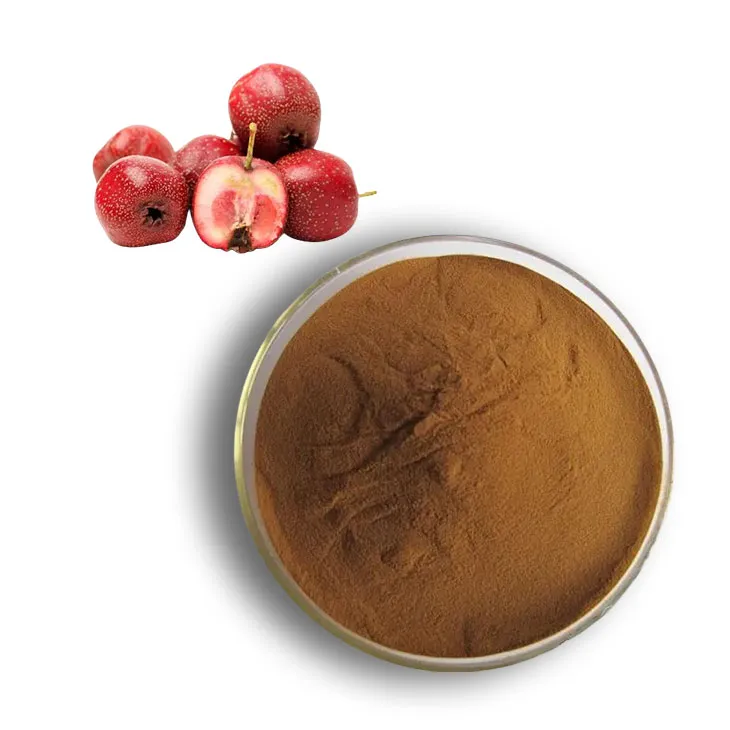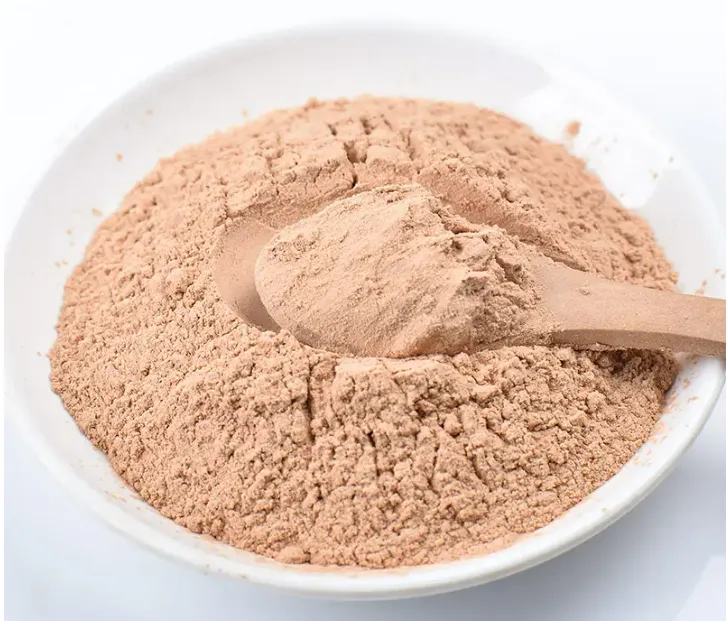- 0086-571-85302990
- sales@greenskybio.com
Hawthorn Extract: Benefits, Uses and Possible Side Effects
2024-11-13

1. Introduction
Hawthorn, a shrub or small tree native to temperate regions of the Northern Hemisphere, has a long history of use in traditional medicine. The extract from hawthorn has gained significant popularity in recent years due to its potential health benefits. This article aims to explore the various aspects of Hawthorn Extract, including its benefits, uses, and possible side effects.

2. Benefits of Hawthorn Extract
2.1 Cardiovascular Health
One of the most well - known benefits of Hawthorn Extract is its positive impact on cardiovascular health. It has been shown to help lower blood pressure in some individuals. The active compounds in hawthorn, such as flavonoids, oligomeric procyanidins, and triterpenoids, may act on the blood vessels, causing them to dilate and thus reducing the resistance in the circulatory system. This can lead to a decrease in blood pressure levels, which is beneficial for those at risk of hypertension.
Moreover, hawthorn extract may also improve heart function. It can enhance the contractility of the heart muscle, which means that the heart is able to pump blood more efficiently. This is particularly important for individuals with heart failure or those with weakened heart muscles. Studies have suggested that regular consumption of hawthorn extract may help to reduce symptoms such as shortness of breath and fatigue associated with heart problems.
2.2 Digestive Health
Hawthorn extract can also play a role in promoting digestive health. It has been traditionally used to aid digestion by increasing the production of digestive enzymes. These enzymes are essential for breaking down food into smaller molecules that can be easily absorbed by the body. By enhancing enzyme production, hawthorn extract can improve the overall efficiency of the digestive process.
In addition, hawthorn extract may have a soothing effect on the digestive tract. It can help to reduce inflammation in the gut, which is beneficial for individuals with conditions such as gastritis or irritable bowel syndrome. The anti - inflammatory properties of hawthorn extract can also help to relieve abdominal pain and discomfort associated with digestive disorders.
2.3 Antioxidant Properties
The flavonoids and other phenolic compounds present in hawthorn extract possess strong antioxidant properties. Antioxidants are substances that can neutralize free radicals in the body. Free radicals are unstable molecules that can cause damage to cells and tissues through a process called oxidative stress. By scavenging free radicals, hawthorn extract can help to protect the body from various diseases, including cancer, cardiovascular diseases, and neurodegenerative disorders.
Furthermore, the antioxidant activity of hawthorn extract can also contribute to its anti - aging effects. It can help to reduce the appearance of wrinkles and fine lines by protecting the skin from oxidative damage. This makes hawthorn extract a potential ingredient in anti - aging skincare products.

3. Uses of Hawthorn Extract
3.1 Traditional Herbal Medicine
In traditional herbal medicine, hawthorn has been used for centuries. It was often prepared as a tea or tincture to treat various ailments. For example, in Chinese medicine, hawthorn fruits were used to treat digestive problems such as indigestion and abdominal distension. In European traditional medicine, hawthorn was used to treat heart conditions, including heart palpitations and angina.
3.2 Modern Wellness Products
Today, hawthorn extract is widely used in modern wellness products. It can be found in dietary supplements, such as capsules, tablets, and softgels. These supplements are often marketed for their potential benefits in maintaining cardiovascular health, improving digestion, and providing antioxidant protection.
Hawthorn extract is also used in some functional foods and beverages. For instance, it may be added to herbal teas, juices, or energy bars to enhance their nutritional value and health - promoting properties.

4. Possible Side Effects of Hawthorn Extract
4.1 Mild Gastrointestinal Disturbances
Some people may experience mild gastrointestinal disturbances when taking hawthorn extract. These can include symptoms such as nausea, vomiting, and diarrhea. However, these side effects are usually rare and tend to be mild when they do occur. They may be more likely to occur if the extract is taken in excessive amounts or on an empty stomach.
4.2 Allergic Reactions
Although allergic reactions to hawthorn extract are not common, they can occur in some individuals. Allergic symptoms may include skin rashes, itching, swelling, and difficulty breathing. People with known allergies to plants in the Rosaceae family, which includes hawthorn, are at a higher risk of experiencing an allergic reaction to hawthorn extract.
4.3 Interaction with Medications
Hawthorn extract may interact with certain medications. For example, it may potentiate the effects of medications used to treat heart conditions, such as beta - blockers and digoxin. This can lead to an increased risk of side effects, such as a significant drop in blood pressure or an abnormal heart rhythm. Therefore, it is important for individuals taking medications for heart problems to consult their doctor before using hawthorn extract.
5. Conclusion
Hawthorn extract offers a range of potential benefits for human health, including promoting cardiovascular health, digestive health, and providing antioxidant protection. It has a long history of use in traditional medicine and is now widely incorporated into modern wellness products. However, it is important to be aware of the possible side effects, such as mild gastrointestinal disturbances, allergic reactions, and interactions with medications. By understanding these aspects, individuals can make informed decisions about whether and how to use hawthorn extract to support their health.
FAQ:
What are the main benefits of hawthorn extract?
Hawthorn extract has several main benefits. It can promote digestion by helping the body break down food more efficiently. It also plays a significant role in improving blood circulation, which is beneficial for overall cardiovascular health. Additionally, it may have antioxidant properties that can help protect the body's cells from damage.
How is hawthorn extract used in traditional herbal preparations?
In traditional herbal preparations, hawthorn extract may be used in the form of tinctures, teas, or dried and powdered forms. For example, hawthorn tea has been used for centuries. The dried hawthorn fruits or leaves are steeped in hot water to make a tea that is believed to have various health - promoting effects. Tinctures are made by soaking hawthorn in alcohol to extract its active compounds and are used for medicinal purposes following traditional recipes.
What are the contemporary wellness products that contain hawthorn extract?
There are many contemporary wellness products containing hawthorn extract. Some dietary supplements in the form of capsules or tablets are popular. These are often marketed for heart health and general well - being. Additionally, hawthorn extract can be found in some herbal blends used in the health and fitness industry. There are also natural skincare products that may include hawthorn extract due to its potential antioxidant properties.
What are the possible side effects of hawthorn extract?
Although hawthorn extract is generally considered safe for most people, some possible side effects may occur. It can cause mild digestive issues such as nausea, stomach upset, or diarrhea in some individuals. In addition, it may interact with certain medications, especially those used for heart conditions. For example, it could potentially enhance the effects of blood - thinning medications, so it is important to consult a doctor before using hawthorn extract if taking other medications.
Is hawthorn extract suitable for everyone?
No, hawthorn extract is not suitable for everyone. People with certain medical conditions, especially those with severe heart problems, should consult their doctor before using it. Pregnant and breastfeeding women should also be cautious as there is not enough research on its safety in these situations. And those who are allergic to hawthorn or related plants should avoid it.
Related literature
- The Therapeutic Potential of Hawthorn Extract in Cardiovascular Diseases"
- "Hawthorn Extract: A Review of Its Traditional Uses and Modern Applications"
- "Safety and Efficacy of Hawthorn Extract: An Evidence - Based Analysis"
- ▶ Hesperidin
- ▶ Citrus Bioflavonoids
- ▶ Plant Extract
- ▶ lycopene
- ▶ Diosmin
- ▶ Grape seed extract
- ▶ Sea buckthorn Juice Powder
- ▶ Fruit Juice Powder
- ▶ Hops Extract
- ▶ Artichoke Extract
- ▶ Mushroom extract
- ▶ Astaxanthin
- ▶ Green Tea Extract
- ▶ Curcumin
- ▶ Horse Chestnut Extract
- ▶ Other Product
- ▶ Boswellia Serrata Extract
- ▶ Resveratrol
- ▶ Marigold Extract
- ▶ Grape Leaf Extract
- ▶ New Product
- ▶ Aminolevulinic acid
- ▶ Cranberry Extract
- ▶ Red Yeast Rice
- ▶ Red Wine Extract
-
Wheat Germ Extract
2024-11-13
-
Resveratrol extract
2024-11-13
-
Rosemary extract
2024-11-13
-
Cactus Extract
2024-11-13
-
Eyebright Extract
2024-11-13
-
Hops Extract
2024-11-13
-
Hawthorn Extract
2024-11-13
-
Dandelion Leaf Extract
2024-11-13
-
Peppermint Extract Powder
2024-11-13
-
Quercetin
2024-11-13




















